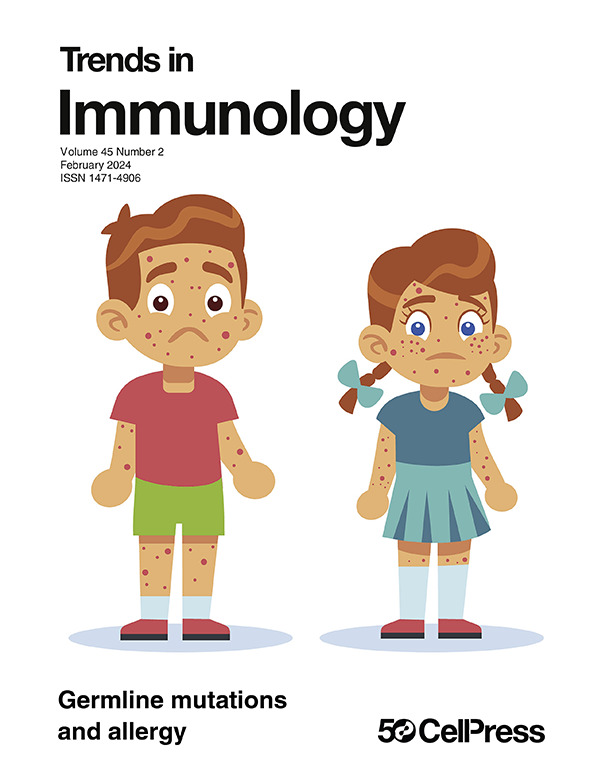渴望防御:脾脏神经支配驱动体液免疫。
IF 13.1
1区 医学
Q1 IMMUNOLOGY
引用次数: 0
摘要
免疫和感觉神经系统通过交流来维持体内平衡。Wu 等人最近证实,感觉神经元支配着小鼠脾脏。这些神经元促进脾脏 B 细胞生殖中心(GCs)的降钙素基因相关肽(CGRP)依赖性反应和抗原特异性抗体的产生。膳食中的辣椒素能激活这些神经元,从而增强体液免疫力,抵御流感病毒感染。本文章由计算机程序翻译,如有差异,请以英文原文为准。
Aching to defend: spleen innervation drives humoral immunity.
The immune and sensory nervous systems communicate to maintain homeostasis. Wu et al. recently demonstrated that sensory neurons innervate the mouse spleen. These neurons promote calcitonin gene-related peptide (CGRP)-dependent responses in splenic B cell germinal centers (GCs) and antigen-specific antibody production. Dietary capsaicin activates these neurons to enhance humoral immunity against influenza virus infection.
求助全文
通过发布文献求助,成功后即可免费获取论文全文。
去求助
来源期刊

Trends in Immunology
医学-免疫学
CiteScore
25.10
自引率
0.60%
发文量
130
审稿时长
6-12 weeks
期刊介绍:
Trends in Immunology serves as a vital platform for tracking advancements across various areas of immunology, offering concise reviews and hypothesis-driven viewpoints in each issue. With additional sections providing comprehensive coverage, the journal offers a holistic view of immunology. This broad perspective makes it an invaluable resource for researchers, educators, and students, facilitating the connection between basic and clinical immunology. Recognized as one of the top monthly review journals in its field, Trends in Immunology is highly regarded by the scientific community.
 求助内容:
求助内容: 应助结果提醒方式:
应助结果提醒方式:


